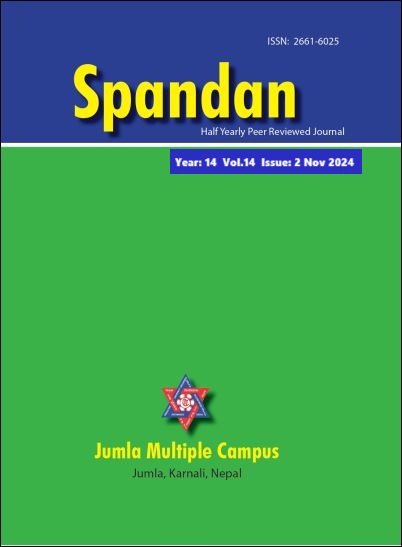Exploring Axiological Beliefs in Taoism for Second Language Acquisition
DOI:
https://doi.org/10.3126/spandan.v14i1.74857Keywords:
Taoism, Tao Te Ching, yin-yang, axiology, non-action, Chinese philosophyAbstract
Taoism, a major tradition from ancient Chinese thought, centers around the concept of "Tao" or "the Way," emphasizing harmony with nature and balance in life. Originating during the Zhou dynasty, Taoism is shaped by seminal texts such as the Tao Te Ching and Zhuangzi. While Western discourse often distinguishes Taoist philosophy (Daojia) and religion (Daojiao), this division contrasts with the holistic worldview of Taoists. Taoist axiology highlights values like balance through Yin-Yang dualism, ethical responsibility towards nature, non-attachment, and skepticism of manmade rules even in English/second language acquisition. The Taoist ethos advocates non-action governance, self-preservation, and the integration of humanity as part of, not superior to, nature. This article explores Taoist values and their relevance to modern contexts, highlighting their contributions to Chinese philosophy, culture, and practices such as Feng-shui, martial arts, traditional medicine, and even in second language learning. Taoism offers a timeless framework for achieving balance, ethical living, and sustainable coexistence.




